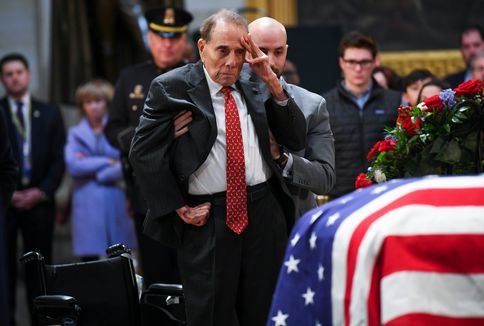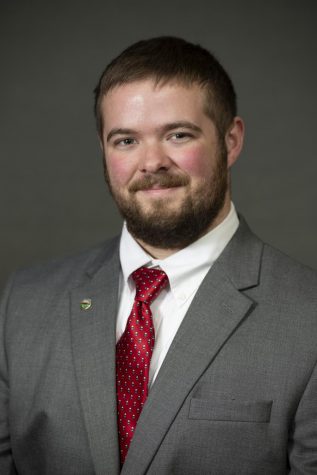President Bush, Son of The Greatest Generation
December 6, 2018
On Nov. 30, the nation lost one of its great champions when George H.W. Bush, the 41st President of the United States, died in his home in Houston at 94 years old. His death has been felt all over the nation and beyond as people paid homage to his memory in the days following his death. On Sunday, thousands gathered at Bush’s Presidential library at Texas A&M University to mourn his death before his body began the trip to Washington where it will be open for public visitation from Monday to Wednesday before being taken back to Houston where he will be buried at the library named after him on the campus of Texas A&M University alongside his wife Barbara Bush.
George H. W. Bush served as the President of the United States from 1989 to 1993 and served as a member of the Republican Party. Prior to his time as the President he had also held positions as a U.S. Representative, Ambassador, and Director of Central Intelligence. Bush also served with the U.S. military in World War II, enlisting in the Navy when he was 18 following the attack on Pearl Harbor that brought the U.S. into the conflict. Bush lived through some of the darkest events in U.S. history and served at the forefront of the deadliest conflict in modern history, steeling him for the task of leading our nation through the post-Cold War world. His Presidency saw the fall of the Berlin Wall, the dissolution of the Soviet Union and the creation of the North American Free Trade Agreement.
Bush is also known for his environmental achievement with the Clean Air Act of 1990 that used a market-based approach to reduce sulfur dioxide emissions from coal-fired power plants, which reacted with chemicals in the air to produce acid raid. The legislation passed with overwhelming support from both sides of the senate and the house, proving Bush’s ability to reach across the aisle to find common ground between the two parties.
Bush’s Presidency is best known for the end of the Cold War and the unification of Germany, bringing an era of fear and hostility to an end. His inauguration ushered in a period of peace that had been missing for many years and brought the nation together after such tumultuous times. Bush’s words during his inauguration ceremony foreshadowed the new era to come when he took office on Jan. 20, 1989.
“I come before you and assume the Presidency at a moment rich with promise. We live in a peaceful, prosperous time, but we can make it better. For a new breeze is blowing, and a world refreshed by freedom seems reborn; for in man’s heart, if not in fact, the day of the dictator is over. The totalitarian era is passing, its old ideas blown away like leaves from an ancient, lifeless tree. A new breeze is blowing, and a nation refreshed by freedom stands ready to push on. There is new ground to be broken, and new action to be taken. There are times when the future seems thick as a fog; you sit and wait, hoping the mists will lift and reveal the right path. But this is a time when the future seems a door you can walk right through into a room called tomorrow.”
Bush’s inauguration speech was optimistic and reflected some of the best traits of his character which included a willingness to work with others and a confidence in the American people to continue moving forward.
Bret Sayre, a local of Topeka, remembered the Bush Presidency fondly and recalled many of the good effects Bush’s Presidency had on America.
“What stands out to me most from his Presidency was his leadership style and his approach to the Presidency. I feel like he was one of the most qualified Presidents that we’ve had due to the other public service positions that he had on his way to the Presidency. Once he got in that office he had the vote of confidence of the American people and he felt comfortable serving in a way that I feel like people many people don’t express today,” said Sayre.
Bush will be missed for his excellent dedication and service to our country. He is the last President to have served in World War II and lived through the economic collapse of the Great Depression. His integrity, patriotism and leadership that he brought to the office of the Commander in Chief will be remembered fondly in the years to come by the American people.




